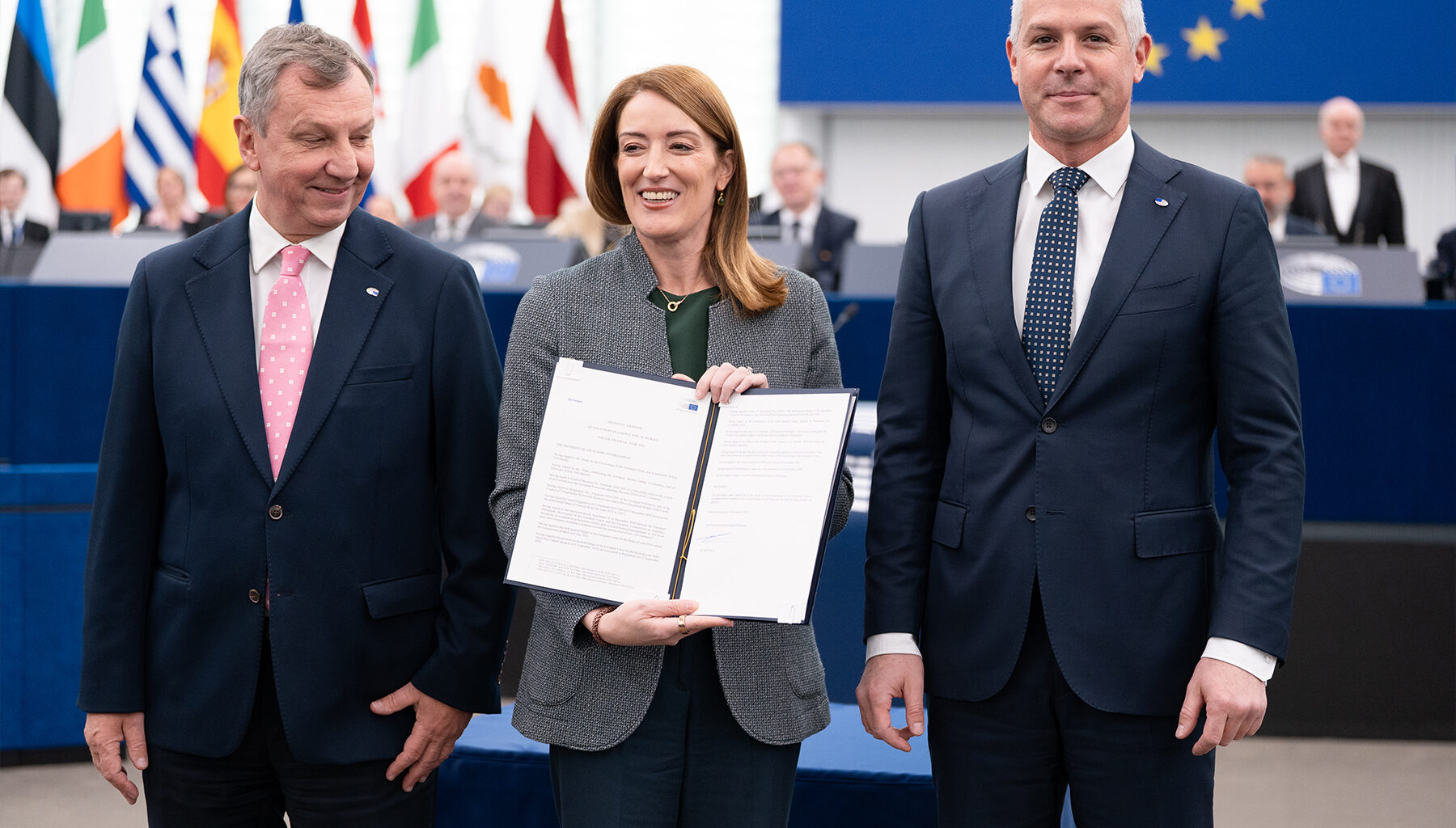In a deal with member states, reached on Saturday 15 November, Parliament obtained an additional €372.7 million for its priorities on top of what the Commission had initially proposed in its draft budget. Parliament focused on increasing funding for programmes and policies aimed at improving people’s lives, boosting competitiveness, and addressing defence challenges.
Additional funding for major EU programmes
To boost competitiveness and improve cross-border infrastructure, MEPs increased funding for Horizon Europe by €20 million and for transport and energy networks by €23.5 million. Parliament secured an additional €10 million for the Civil Protection Mechanism and RescEU to improve coordination and disaster response. Playing an essential role in the EU’s defence preparedness, military mobility will get an additional €10 million. MEPs also ensured that border management will be reinforced with anadded €10 million.
The EU’s environment and climate action instrument, the LIFE programme, will receive an additional €10 million in funding, while the EU4Health and Erasmus+ programmes will benefit from a further €3 million each.
Parliament pushed for an additional €35 million for the EU’s Southern Neighbourhood, and a €25 million increase for the Eastern Neighbourhood. It also secured a €35 million increase in humanitarian aid, in response to growing geopolitical instability, accelerating global humanitarian crises, and climate change-induced emergencies.
To create new opportunities, particularly for young farmers, funding for measures promoting European agricultural products under the European Agricultural Guarantee Fund has been increased by €105 million in line with Parliament’s position.
Repayment costs for the Next Generation EU recovery package
The EU is facing an unexpected €4.2 billion increase in borrowing costs for NextGenerationEU in 2026, which is twice the amount initially projected by the Commission. MEPs ensured that this extra cost will not lead to reductions in key programmes such as Erasmus+ or EU4Health. As previously agreed, the additional costs are being handled through the “cascade mechanism”, which is intended to manage rising NextGenerationEU repayment expenses while safeguarding flagship programmes.
The total budget for 2026 is €192.8 billion in commitments, and €190.1 billion for payments, leaving a margin of €715.7 million below the 2026 multiannual financial framework ceilings in commitments for unforeseen events. More details are available in the “elements for joint conclusion”, in this background briefing and the recent press release following the deal between Parliament and Council.
The 2026 budget was adopted by 419 votes to 185, with 53 abstentions. Council endorsed the deal on Monday.
Quotes
“We live in turbulent times, with rising expectations and increasing demands on the EU budget. As citizens’ priorities evolve, it is essential for the Parliament and EU institutions to listen and respond effectively. Progress is being made, but the budget alone will only get us so far. Continued efforts and further steps will be needed to enhance competitiveness,” said the chair of the Committee on Budgets, Johan Van Overtveldt (ECR, BE) said. (Watch the full plenary speech.)
“In the difficult circumstances of Russia’s war of aggression, natural disasters and geopolitical pressures, we stayed focused on our priority for the 2026 budget during the negotiations with EU governments: a safer, stronger Europe. Parliament secured nearly €400 million in top-ups, reinstated cuts proposed by the Council and reinforced key programmes, for example ensuring better border protection, military mobility, and greater support for our neighbourhood and humanitarian aid. United in our position throughout the process, we delivered a solid budget for next year that focuses on a secure, stable, and stronger Europe for citizens,” said the general rapporteur for the EU’s 2026 budget (for section III – Commission), Andrzej Halicki (EPP, PL). (Watch the full plenary speech.)
“The 2026 EU budget represents the Europe we want to build: one that invests in knowledge, youth, research, environmental protection, solidarity, and humanitarian aid. We secured a strong deal that supports crucial EU programmes and key institutions, strengthens our rule of law protections and values, and delivers for our citizens. Thanks to Parliament, the agreement on additional staff and top-ups moves the Union forward, stronger – and this is something we can all be proud of,” rapporteur for the other sections, Matjaž Nemec (S&D, SI) said. (Watch the full plenary speech.)
Background
More than 93% of the EU budget goes directly into EU programmes that support people and projects across member states. The annual EU budget, which serves 27 countries and 450 million Europeans, is relatively small – on average €160 to 200 billion over the 2021 to 2027 period. This is comparable to the national budget of Poland, which serves 39 million people, or the equivalent of 30% of the budget of Germany, which serves 84 million people. (Source: Commission)

